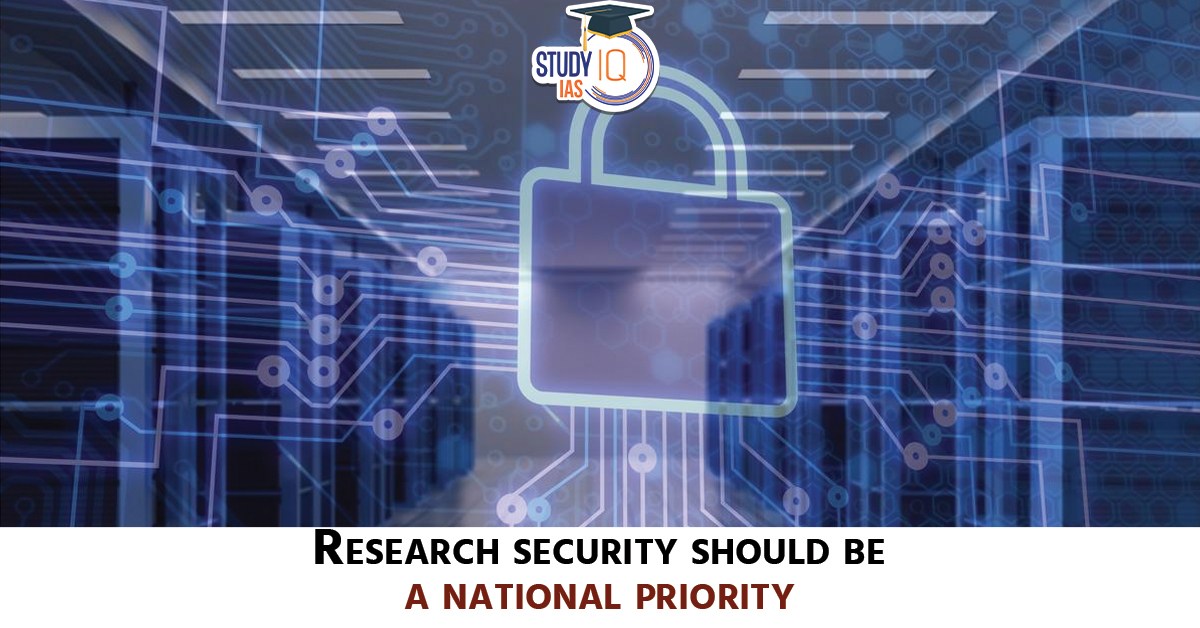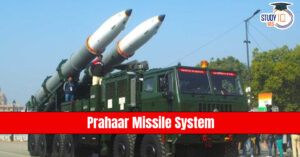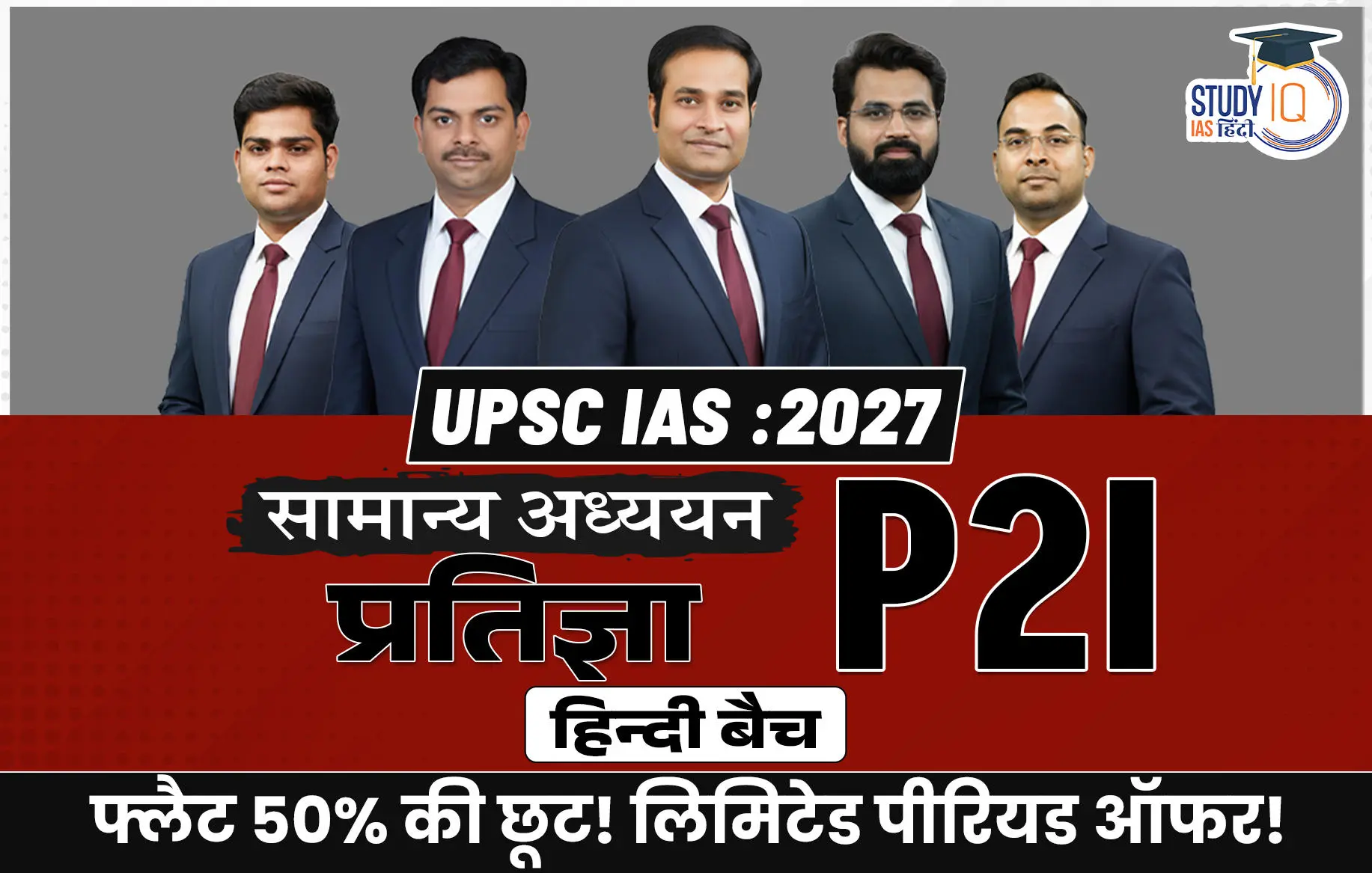Table of Contents
Context
- India aims to lead in strategic and emerging technologies like space, defense, and AI by 2047.
- Significant investments are crucial to achieve global competitiveness and address societal challenges.
| Global Context and Examples |
|
Global Responses to Research Security
- United States: The US CHIPS and Science Act includes provisions for research security, supported by guidelines from the National Institute of Standards and Technology.
- Canada: Implemented National Security Guidelines for Research Partnerships, identifying sensitive technologies and institutions from countries like China, Iran, and Russia.
- European Union: The European Council recommends self-governance principles and risk-based responses, emphasizing the establishment of a centre of expertise on research security.
Research Security in India
- Current State: Despite India’s progress in strategic R&D, research security has not received adequate attention in academic or policymaking circles.
- This leaves gaps that adversaries could exploit.
- Key challenges include:
- Foreign influence on universities and research labs.
- Vulnerabilities in strategic research infrastructure.
- Insider threats through personnel hiring and access control practices.
- Limited existing frameworks for securing sensitive data and technologies.
Proposed Measures for India
- Mapping Vulnerabilities: Assess foreign influence and funding in universities.
- Review vulnerabilities in research labs and infrastructure.
- Evaluate insider threats in critical facilities.
- Audit foreign collaborations in strategic sectors.
- Developing a Research Security Framework: Categorise research based on strategic value, economic impact, and national security implications.
- Adopt a risk-based and proportionate response, as recommended by the EU.
- Develop a surveillance mechanism to monitor emerging risks.
- Capacity Building and Collaboration: Engage with trusted international partners for initial capacity-building efforts.
- Foster collaboration between security agencies, researchers, and technical experts to draft guidelines.
- Establish a Research Security Office under the Anusandhan National Research Foundation (ANRF) to coordinate and implement security measures.
Addressing Challenges
- Academic Freedom vs. Research Security: Balancing restrictions on foreign funding/collaborations with the collaborative nature of science.
- Ensuring that security measures do not stifle open science principles (e.g., open data, shared research infrastructure).
- Administrative Burden: Minimise bureaucracy to prevent additional administrative challenges for researchers.
- Avoiding Overreach: Prevent research security from becoming a tool for political interference in academia.
- Ensure decisions are guided by technical expertise, not solely by intelligence/security agencies.
Implementation Strategy
- Secure funding and effective communication to create a cadre of research security professionals.
- Engage researchers at all decision-making levels.
- Adopt the principle: “As open as possible, as closed as necessary.”
- Use the ANRF as a focal point for coordination among security agencies and academic institutions.


 US–Israel Attack on Iran 2026: Khamene...
US–Israel Attack on Iran 2026: Khamene...
 Agentic AI vs AI Agents: Meaning, Differ...
Agentic AI vs AI Agents: Meaning, Differ...
 Prahaar Missile System: Range, Features ...
Prahaar Missile System: Range, Features ...




















